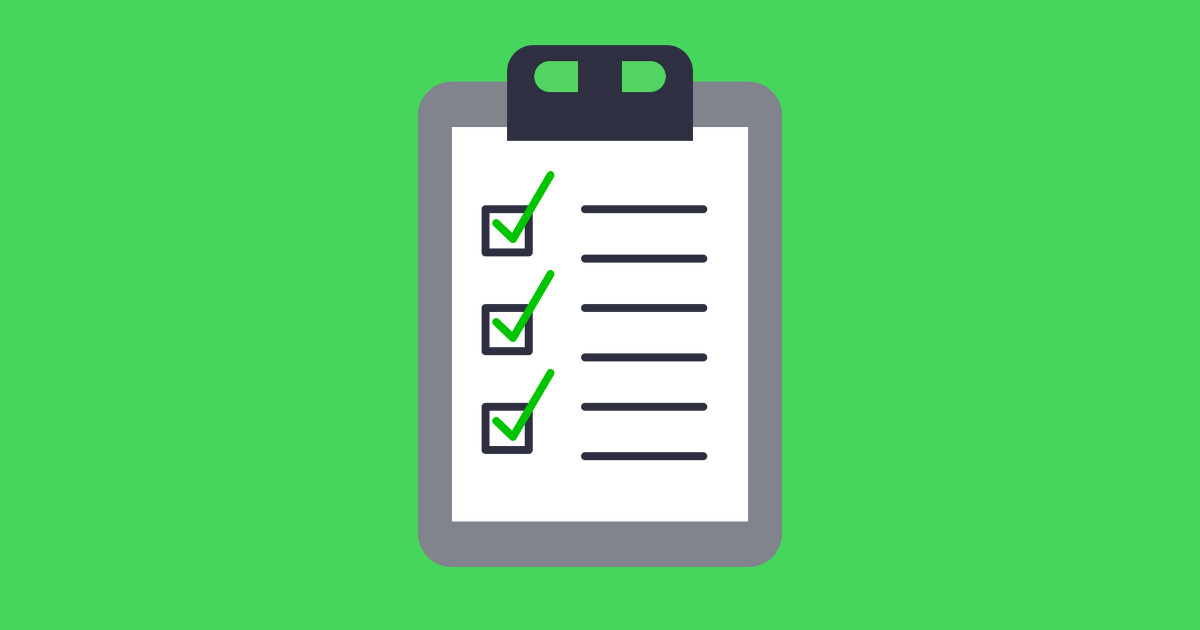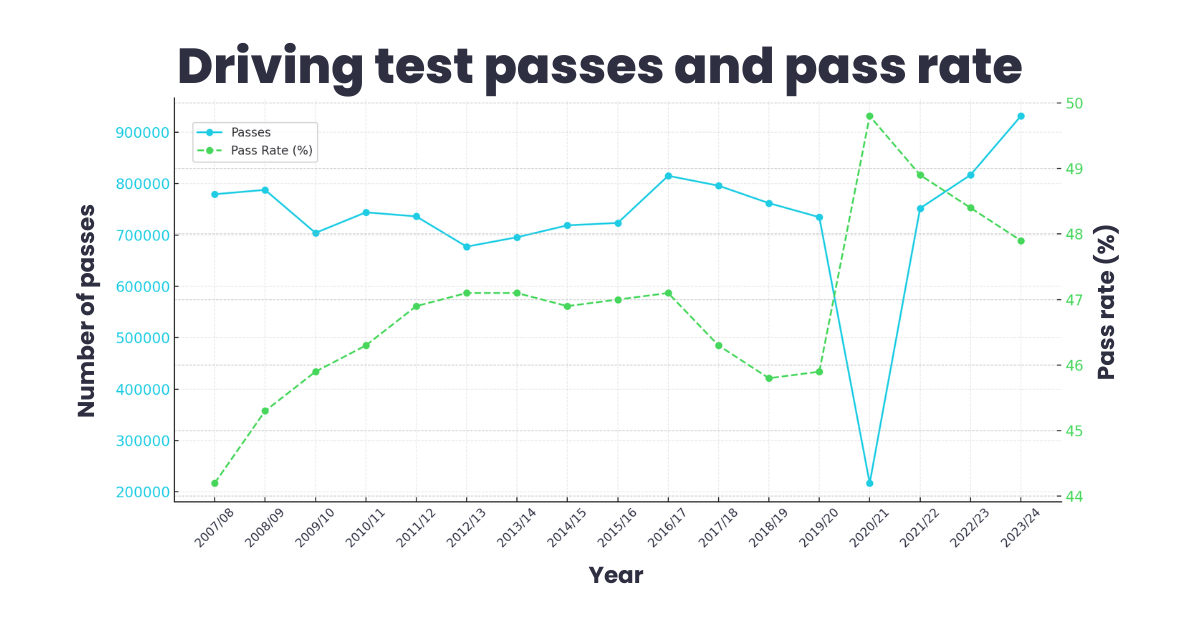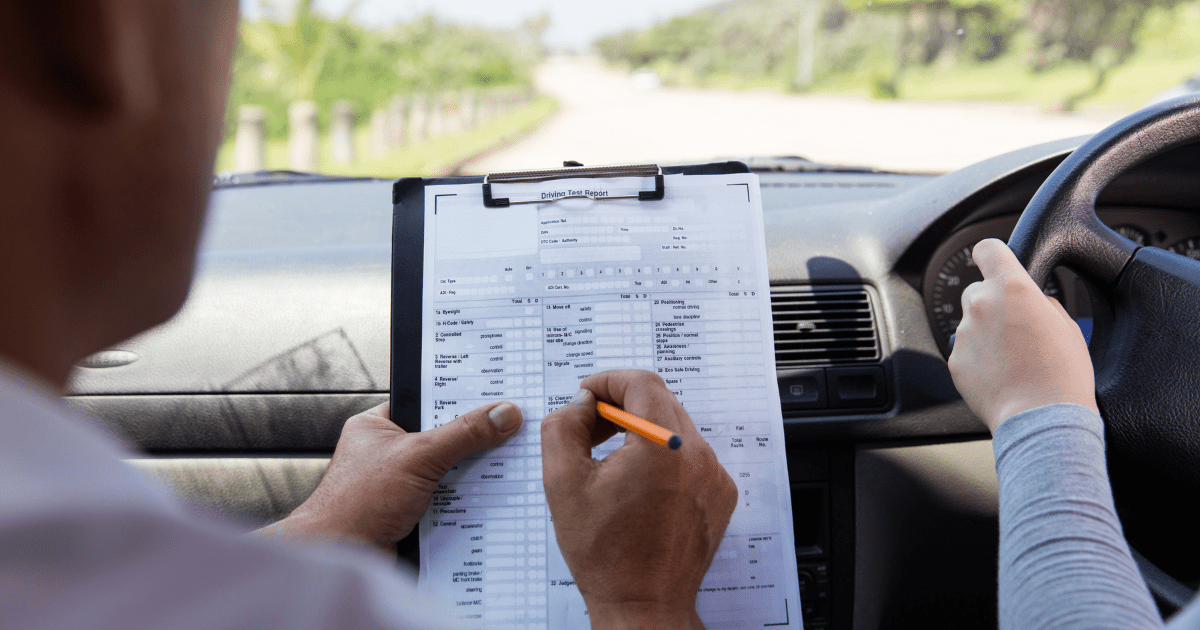
Dual Carriageways and Single Lanes: What You Need to Know
Learn the difference between dual carriageways and single lanes, including speed limits, rules, and guidance, and whether learner drivers are allowed.
Learning to drive is an exciting milestone, whether you’re just starting out or already progressing through your lessons. It’s not just about earning your licence; it’s about gaining independence, freedom, and the skills to stay safe on the road. Now we are in a new year, clear driving goals can give you the motivation and structure needed to make the most of your learner journey.
For anyone holding a provisional licence or considering applying for one soon, setting goals when learning to drive can help keep you on track, build confidence, and potentially make the process less overwhelming. By breaking down your learner driver targets into manageable steps, you’ll be able to achieve important milestones, overcome common challenges, and make steady progress.
In this guide, we’ll discuss why setting goals is important, highlight some practical driving targets, and help you prepare for the year ahead, whether you’re a new learner about to start or someone already partway through their learning-to-drive journey.
Setting goals when learning to drive is like having a roadmap for your journey. Without a clear plan, it’s easy to feel lost, overwhelmed, or unsure of your next step. By establishing goals, you give yourself a clear focus and can make steady progress towards becoming a confident driver.
Here are three key reasons why setting learner driver goals is so important:
Boost Your Confidence: Knowing what milestones you’re aiming for keeps you motivated and makes learning feel more manageable. Small achievements add up to big wins!
Keep You on Track: Clear targets help you stay organised and consistent with your lessons, ensuring you maintain momentum.
Measure Your Progress: Ticking off learner driver milestones, like mastering parking or passing your theory test, helps you track how far you’ve come and what’s left to achieve.
Whether you’re someone already learning to drive or preparing to start this year, setting your driving goals gives you the structure and clarity needed to make steady progress. This approach transforms what might feel like a daunting experience into a series of small, achievable steps that keep you motivated and focused.
What stands out the most is 2020/2021, where you can see a significant dip in the number of passes, however the pass rate is particularly high. This is because this is the year of the COVID-19 pandemic which saw a lot of driving tests cancelled/postponed. It is interesting to note that pass rate increased significantly in this time, despite a lot less tests being taken. Whilst there is no exact science behind this, it would appear that those who did manage to get one of the few available driving tests will have been more successful as opposed to the pass rate when more tests were available. Another noticeable trend is the pass rate did seem to increase from 2008 to 2017 which a slight dip around 2014. This could be due to an increase into the use of the internet where learner drivers’ access to online materials to help with both their theory and practical driving tests became more readily available.
Source: https://www.gov.uk/government/statistical-data-sets/car-driving-test-data-by-test-centre
If you’ve already started learning to drive, here are five practical goals you can work towards this year to boost your confidence and skills:
Perfect Your Manoeuvres
Manoeuvres like parallel parking, bay parking, and three-point turns can be tricky, but they’re essential for passing your test. Use this year as the year to perfect each one. Work with your instructor to practise these driving test manoeuvres until they feel like second nature, and don’t be afraid to dedicate extra lessons to areas you find more challenging.
Pass Your Theory Test
If you haven’t already passed, make this year the year you nail your theory test. Passing this test early removes an extra layer of stress and allows you to focus purely on your practical skills. Use revision apps, mock exams, and plenty of practice to ensure you’re prepared for both the multiple-choice questions and hazard perception section.
Tackle Motorway Driving
Motorways can feel intimidating for many learners, especially for those who live in quieter areas. Set a goal to drive on major roads and motorways with your instructor so you’re comfortable at higher speeds. This experience will give you valuable confidence that’ll be essential when you’re driving independently.
Gain Experience in Different Conditions
A skilled driver is one who can adapt to different driving scenarios. Challenge yourself to practise in varying conditions like night driving, rainy weather, and busy rush-hour traffic. This will prepare you to handle real-life situations and make you a more capable driver when you pass your test.
Book and Pass Your Practical Test
A big goal for any learner driver is, of course, booking the practical driving test and hopefully passing! Work with your instructor to identify a realistic target date based on your progress. Break this goal into smaller steps, such as mastering specific skills, and celebrate your progress as you move closer to achieving this major milestone.
Apply for Your Provisional Licence
Before you can begin lessons, you’ll need a provisional driving licence. This should be the first goal on your list. Applying early means you’ll be ready to book lessons and get behind the wheel without unnecessary delays.
Find the Right Driving Instructor
Choosing the right instructor is a key part of a positive learning experience. Take time to research qualified, experienced instructors who come highly recommended. Look for someone whose teaching style suits your needs and who makes you feel comfortable and confident behind the wheel.
Learn the Basics of Car Control
In the early stages of learning to drive, focus on building confidence with the fundamentals such as steering, clutch control, braking, and gear changes. These foundational skills are essential for everything that comes next, so dedicate your first few lessons to mastering the basics.
Set a Consistent Lesson Schedule
Consistency is the key to progress. Try your best to commit to regular, weekly lessons, and try to avoid long breaks in between, as this can set you back. A steady schedule ensures you build your skills consistently and maintain momentum throughout your learning-to-drive- journey.
Prepare for the Theory Test
The theory test might seem a long way off when you’re just starting, but preparing early can help reduce stress. Make it a goal to start revising for your theory test using different revision methods as soon as you begin lessons. Passing your theory test early will allow you to focus fully on practical driving when you’re ready.
Sign up today for exclusive offers, practical guidance, driving tips, and more!

Setting your driving goals for the year can make a huge difference in how you approach learning to drive. Whether you’re a current learner driver working towards big milestones like passing your test, or someone just about to begin their journey, having clear targets gives you the structure, confidence, and motivation to succeed.
Remember, learning to drive isn’t a race. Take your time, stay consistent, and celebrate every success along the way. By breaking your learner driver targets into achievable steps, you’ll make this the year you hit the road with confidence and freedom.
Commonly asked questions about driving goals
Start by identifying what stage you’re at in your driving journey. Break big goals (like passing your test) into smaller, manageable steps, such as mastering specific manoeuvres or scheduling regular lessons.
The number of lessons varies for each learner driver. On average, it takes around 45 hours of professional instruction, but setting goals for extra practice with a supervisor can speed up progress.
Yes, if you’re supervised by a fully qualified driver over 21 who has held a full licence for at least 3 years, and you have valid learner driver insurance.
Setting achievable learner driver milestones and celebrating each success will keep you motivated, no matter how small!
Aim to book your theory test as soon as you feel confident with the material. Be sure to try different theory test revision methods to find a way of revising that suits you and your learning style. By passing early, this will allow you to focus solely on practical lessons and driving goals.
You will be logged out in seconds. Do you want to stay signed in?